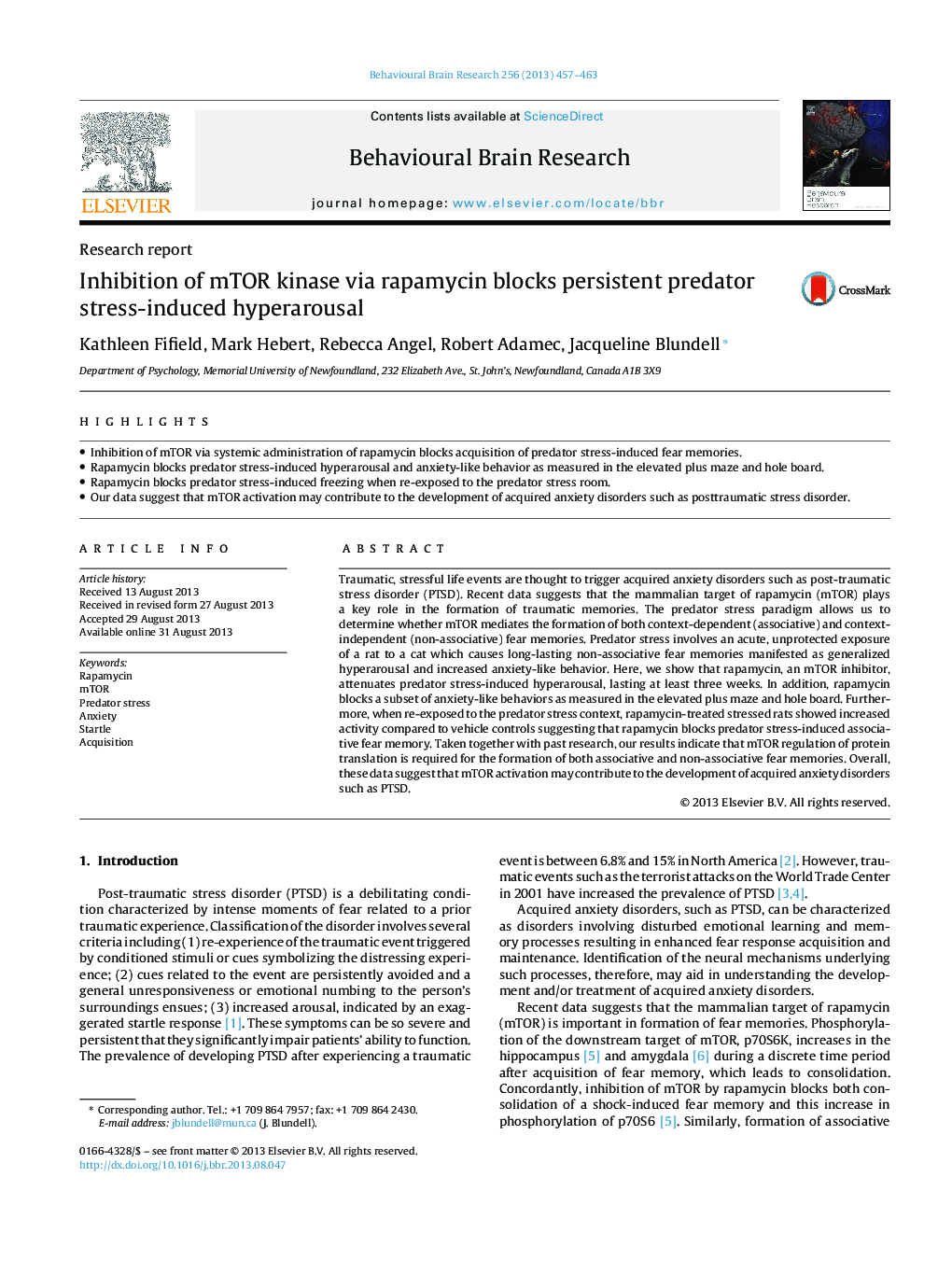| Article ID | Journal | Published Year | Pages | File Type |
|---|---|---|---|---|
| 6258844 | Behavioural Brain Research | 2013 | 7 Pages |
â¢Inhibition of mTOR via systemic administration of rapamycin blocks acquisition of predator stress-induced fear memories.â¢Rapamycin blocks predator stress-induced hyperarousal and anxiety-like behavior as measured in the elevated plus maze and hole board.â¢Rapamycin blocks predator stress-induced freezing when re-exposed to the predator stress room.â¢Our data suggest that mTOR activation may contribute to the development of acquired anxiety disorders such as posttraumatic stress disorder.
Traumatic, stressful life events are thought to trigger acquired anxiety disorders such as post-traumatic stress disorder (PTSD). Recent data suggests that the mammalian target of rapamycin (mTOR) plays a key role in the formation of traumatic memories. The predator stress paradigm allows us to determine whether mTOR mediates the formation of both context-dependent (associative) and context-independent (non-associative) fear memories. Predator stress involves an acute, unprotected exposure of a rat to a cat which causes long-lasting non-associative fear memories manifested as generalized hyperarousal and increased anxiety-like behavior. Here, we show that rapamycin, an mTOR inhibitor, attenuates predator stress-induced hyperarousal, lasting at least three weeks. In addition, rapamycin blocks a subset of anxiety-like behaviors as measured in the elevated plus maze and hole board. Furthermore, when re-exposed to the predator stress context, rapamycin-treated stressed rats showed increased activity compared to vehicle controls suggesting that rapamycin blocks predator stress-induced associative fear memory. Taken together with past research, our results indicate that mTOR regulation of protein translation is required for the formation of both associative and non-associative fear memories. Overall, these data suggest that mTOR activation may contribute to the development of acquired anxiety disorders such as PTSD.
